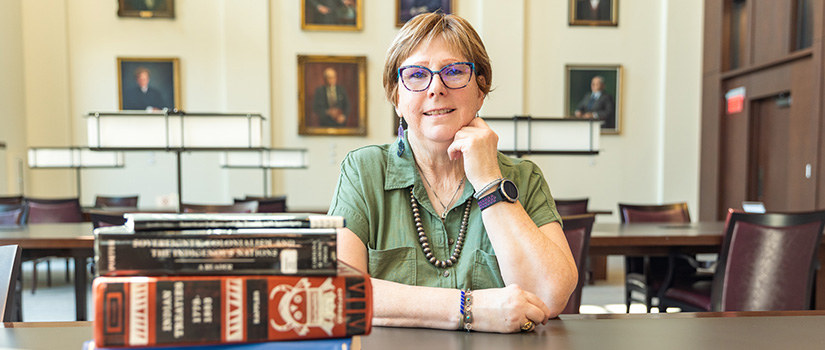Under the United States Constitution, there are three sovereigns, and Rebecca Plevel wants to make sure law students are familiar with all of them.
“Legal education covers federal and state law, but few people are even aware that Indian law (government to government) and tribal law (tribes’ internal structure) exist,” says Plevel, one of the USC Rice School of Law’s reference librarians. “Every federal agency probably has their toes in some project that deals with Native Americans. State agencies, too. Knowing some tribal law can be helpful no matter what area of the law you go into.”
When she joined the law school three years ago, she began teaching 1L Legal Research, Analysis & Writing (LRAW). Since then, she has worked to incorporate Federal Indian law material into the law school curriculum and activities, from transportation to child welfare.
Plevel’s most recent publications on Federal Indian law include a piece suggesting ways legal educators can integrate tribal law into LRAW, and another on how librarians can support indigenous data sovereignty through copyright law.
“U.S. copyright law doesn't protect most Indigenous data (like cave paintings, pottery, totem poles, dances, songs) because one, it's too old, and two, you don't know the original creator or it was communally created,” Plevel says. “Copyright is important because without it, it's an erasure of culture and identity, and Indigenous copyright law could afford more protection.”
As a citizen of the Muscogee (Creek) Nation, Plevel is intent on avoiding Indigenous erasure. The 30 years she spent practicing Federal Indian law deepened her resolve.
“Being Native was in my soul, because it's in my makeup,” Plevel says, “but when I started doing the work, it went to my heart and my mind, too.”
